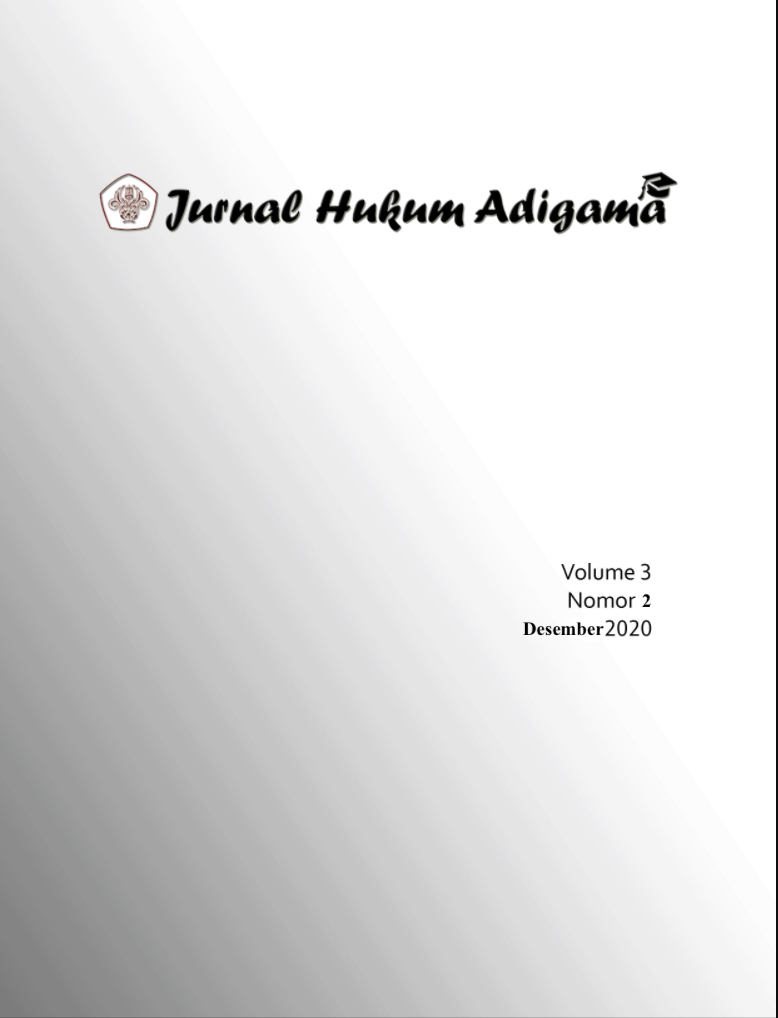UPAYA YURIDIS MEMPERKECIL DISPARITAS PUTUSAN
Main Article Content
Abstract
Article Details
Section
This work is licensed under a Jurnal Komunikasi Creative Commons Attribution-ShareAlike 4.0 International License.
References
Buku
Ali, Mahrus. Dasar-Dasar Hukum Pidana. Jakarta: Sinar Grafika, 2012.
Asrun, A. Muhammad. Krisis Peradilan: Mahkamah Agung di Bawah Suharto. Jakarta: ELSAM, 2004.
Fachmi. Kepastian Hukum Mengenai Putusan Batal Demi Hukum Dalam Sistem Peradilan Pidana Indonesia. Jakarta: PT Ghalia Indonesia Publishing, 2011.
Hiariej, Eddy O.S. Prinsip-Prinsip Hukum Pidana. Yogjakarta: Cahaya Atma Pustaka, 2015.
Kartanegara, Satochid. Hukum Pidana Bagian Satu. Jakarta: Balai Lektur Mahasiswa, 1998.
Muladi, dan Barda Nawawi Arief. Teori-Teori Dan Kebijakan Pidana. Bandung: Alumni, 1984.
Muladi dan Barda Nawawi Arief. Teori-Teori dan Kebijakan Pidana, Kebijakan Penanggulangan Kejahatan dengan Hukum Pidana. Bandung: Alumni, 1992.
Prakoso, Djoko dan Nurwachid. Studi Tentang Pendapat-Pendapat Mengenai Efektivitas Pidana Mati Di Indonesia Dewasa Ini. Jakarta: Ghalia Indonesia,1984.
Ujan, Andre Atta. Filsafat Hukum, Membangun Hukum, Membela Keadilan. Yogyakarta: Pustaka Filsafat, Kanisius, 2009.
Peraturan Perundang-Undangan
Indonesia. Undang-Undang Dasar Negara Republik Indonesia Tahun 1945.
Indonesia. Kitab Undang-Undang Hukum Pidana
Indonesia. Undang-Undang No 48 Tahun 2009 tentang Kekuasaan Kehakiman.
Artikel Jurnal Online
Ardiansyah, Irfan. “Pengaruh Disparitas Pemidanaan Terhadap Penanggulangan Tindak Pidana Korupsi di Indonesia”, Jurnal Hukum Respublica, Vol 17 No. 1 Tahun 2017.
Nimerodi, Gulo dan Ade Kurniawan Muharram. “Disparitas Dalam Penjatuhan Pidana”, Masalah-Masalah Hukum, Jilid 47 No. 3 Juli Tahun 2018.
Wijayanta Tata dan Hery Firmansyah. “Perbedaan Pendapat Dalam Putusan-Putusan Di Pengadilan Negeri Yogyakarta Dan Pengadilan Negeri Sleman”, Mimbar Hukum, Vol 23 No. 1 Tahun 2011.
HM. Siregar. “Analisis Disparitas Putusan Hakim Dalam Penjatuhan Pidana Terhadap Tindak Pidana Perjudian”, Pranata Hukum, Vol 9 No. 1 Tahun 2014
Kutipan Makalah/Paper/Orasi Ilmiah
Fitri, Insani. “Tinjauan Yuridis Disparitas Putusan Narkoba (Studi Kasus Pengadilan Negeri Sukoharjo)”. Skripsi, Surakarta: FH UMS, 2018.
Hamka, Wahyuni. “Disparitas Putusan Hakim Dalam Perkara Tindak Pidana Penganiayaan (Studi Putusan Pengadilan Negeri Sungguminasa)”, Skripsi, Makassar: FH UIN Alauddin, 2018.
Rahman, Ardillah. “Implementasi Penjatuhan Pidana Terhadap Pelaku Tindak Pidana Narkotika (Studi Kasus Tahun 2010-2012 di Kabupaten Wajo)”, Skripsi, Makasar: FH Unhas, 2013.
Rohmatin, Erni Ebi. “Ratio Decidendi hakim Pengadilan Agama Malang Dalam Putusan No. 2303/Pdt.G/2015/PA Mlg Tentang Lelang Eksekusi Hak Tanggungan”, Skripsi, Malang: FH UIN Maulana Malik Ibrahim, 2018

